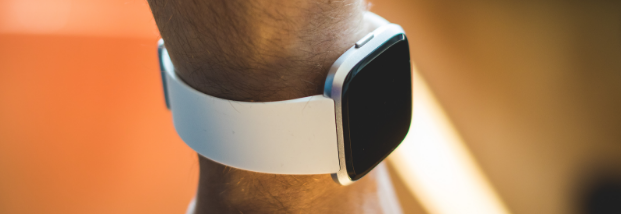Could your local gym or fitness tracker be giving you an eating disorder?
Could your local gym or fitness tracker be giving you an eating disorder?
Have you been body or fat shamed at the gym?
Have you been encouraged by physical trainers to go on restrictive diets or take expensive supplements they conveniently sell at their gym?
Do you feel guilty if you miss even one workout?
Do people around you at the gym talk constantly about needing to be “cut”, “ripped”, or worry about being fat or unfit?
Do you feel you have to be wearing your fitness tracker at all times?
Not all gyms are bad. This is not a post to warn you never to set foot in a gym again.
Fitness trackers are not necessarily bad. This is not a post to urge you to throw yours in the trash.
Yet, although some gyms are inclusive and don’t push dieting or extreme fitness, many do, and they are part of a toxic gym culture that preys upon the insecurities of men and women in order to increase their profits and keep you coming back for more.
Paul Landini, a personal trainer writing for The Globe, notes: “Toxic gym culture manifests itself in all sorts of ways, though it can be tough to identify unless you’re the target. Bullying and sexual harassment are the most obvious examples, but by no means are they the only ones. Ageism, ableism, sexism, racism, fat-shaming, homophobia – if you train at a standard big-box gym, there’s a good chance this stuff is happening all around you.”
Insider reports: Sometimes the more egregious examples make headlines. Last August, one gym ran an ad that showed a photo of a pear with the words, "This is no shape for a girl." The same month, a gym chain in the UK put up a billboard depicting an alien and UFO with the words, "They're coming ... and when they arrive they'll take the fat ones first."
Exercise purging or exercise bulimia, is a very dangerous form of an eating disorder that can be made so much worse by toxic gym culture. Believe it or not, you CAN exercise too much and it can be devastating not only to your body.
“Excessive exercise can cause a number of physical issues, including everything from dehydration and fatigue to chronic pain in the knee or back, injuries like shin splints, strains and sprains, tendinitis of the shoulder, knee, elbow or hip, and stress fractures. More long-term health problems that might be the result of excessive exercise include osteoporosis, degenerative arthritis, loss of one’s period, reproductive problems, or heart issues, experts say.”
The physical complications are scary, but your emotional health can also suffer greatly.
People trying to recover from eating disorders such as binge eating, anorexia nervosa, and bulimia nervosa are especially open to relapse when immersed in a fitness obsessed gym environment.

Here are some of the signs of exercise bulimia and fitness obsession:
- Insisting on exercising even when sick, hurt or tired.
- Skipping non-exercise related social events or time with family in order to complete a workout.
- Having an obsessive exercise routine that causes panic when modified.
- Feeling extreme guilt and low self self-esteem when you take time off from exercise.
- Engaging in other eating disordered behaviors such as purging and restricting to try to achieve a “ripped” or “cut” body.
- Being overly concerned with one body part, or your body’s appearance overall.
- Spending money you can’t afford on expensive diets and supplements that are unproven and marketed by your trainer and/or the gym.
- Working out for hours without rest for most days of the week.
- Assigning a moral value to exercise - i.e. you are a success and a good person for completing a workout, and other people are seen as “lazy” and lacking willpower.
- Exercising in conditions that are not safe, such as in bad weather, extreme heat or cold, or in dangerous environments.
- Skipping meals if you miss a workout because you feel guilty and want to compensate.
- Doing exercise you hate because you feel it will make you more fit and healthy, rather than engaging in joyful movement that isn’t weight related.
- Using exercise as your primary method of coping with anxiety or depression without other supports.
Gyms aren’t the only culprits - you may be wearing one on your wrist!
Again, I’m not telling you to throw out your fitness tracker (although I do believe it is very difficult to use them in moderation and they are becoming more and more invasive into our activities and lives), but keep in mind that they can become addictive.
"Within less than a week of use, I became addicted," recovering anorexic and bulimic Andria Martin wrote on XOJane. "I had to wear it all the time and track every minute of activity correctly. Every bite of food. Every hour of sleep. Every everything."
And just like toxic gyms, fitness trackers can trigger eating disorder relapse.
Bustle reports: “The propensity of activity trackers and calorie counters to trigger eating disorders and cause relapses in previous sufferers is a pretty well-documented phenomenon by now. Since the New Republic published an article back in 2013 titled, ominously, "Hunger Games," personal stories have abounded from recovering anorexics and bulimics about how a wristband or activity tracker app pushed them back over the edge.

Since the dawn of industrialization we have lived in a culture that encourages eating disordered thinking and behaviors, but today these messages are even more insidious because they are usually cloaked in misguided advice about “health and wellness”.
Gyms and fitness devices and apps feed into this unhealthy thinking by using addictive and shaming sales techniques and technology.
They do not encourage moderation or other more holistic models of health that include being part of a supportive community, getting enough rest, having fun, finding meaningful purpose in life, and nurturing spiritual connections.
If you feel you have become a slave to your gym or fitness device, and worse, if it’s triggering more severe eating disorder symptoms such as bulimia, restrictive eating, body dysmorphia or compulsive exercise, you need help to deprogram from diet culture.
We’re here to help if this describes you or your child.
Just call us at 904-737-3232 or email us a message here for a free 15 minute consult and we’ll help you start the process of becoming more balanced and eating disorder free.










